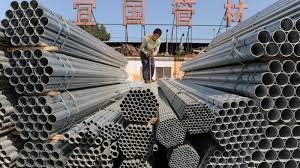Globaltraded.com — Participating in a major trade show in Western Europe, such as those held in Germany, is a significant investment for any entrepreneur. These events offer invaluable opportunities to showcase products, network with industry peers, and gain visibility in a competitive market. However, the financial commitment extends beyond the obvious costs of travel and accommodation.
This article provides a detailed analysis of the various operational expenses involved, including booth rental, dining, local taxes, and other ancillary costs.
1. Booth Rental Costs
Overview: The cornerstone of any trade show participation is the booth rental. This fee can vary widely depending on the size of the booth, its location within the exhibition hall, and the prestige of the event.
Breakdown:
- Standard Booth: A basic 9 square meter (sqm) booth at a major German trade show like the Hannover Messe or the Frankfurt Book Fair can cost between €2,500 and €5,000 for a week.
- Premium Location: Booths in high-traffic areas or with larger floor space can escalate to €10,000 or more.
- Customization: Custom-built booths, which include personalized branding, specialized furniture, and advanced display technology, can add another €5,000 to €20,000 to the overall cost.
2. Exhibit Construction and Design
Overview: Beyond renting the booth space, the actual construction and design of the exhibit can represent a significant portion of the budget.
Breakdown:
- Basic Setup: A simple setup with standard furniture and basic signage might cost around €1,000 to €3,000.
- Advanced Design: A more elaborate design, featuring custom displays, high-quality materials, and interactive elements, can range from €5,000 to €15,000.
- Labor Costs: Installation and dismantling services typically cost between €500 and €2,000, depending on the complexity of the exhibit.
3. Logistics and Shipping
Overview: Transporting products and exhibit materials to and from the trade show is another critical expense.
Breakdown:
- Freight Shipping: Depending on the volume and weight of the goods, international freight shipping can range from €2,000 to €10,000.
- Customs and Duties: Import duties and customs fees can add an additional €500 to €3,000, depending on the nature and value of the goods.
- On-Site Handling: Fees for moving goods within the exhibition venue, often referred to as drayage, typically range from €500 to €1,500.
4. Utilities and Services
Overview: Trade show organizers usually charge for utilities such as electricity, internet access, and water supply.
Breakdown:
- Electricity: Basic electrical connections cost between €150 and €500, while additional lighting and power requirements can push this cost to €1,000 or more.
- Internet: Reliable internet access can range from €100 to €500 for the duration of the show.
- Water Supply: If the booth requires water for demonstrations or hospitality, this service can cost around €200 to €600.
5. Marketing and Promotion
Overview: Effective marketing and promotion are crucial for maximizing the impact of trade show participation.
Breakdown:
- Pre-Show Marketing: Costs for pre-show marketing activities, including email campaigns, social media advertising, and direct mail, can range from €1,000 to €5,000.
- On-Site Promotions: Giveaways, printed materials, and promotional items typically cost between €500 and €3,000.
- Sponsorship Opportunities: Sponsorship packages offered by trade show organizers, which include enhanced visibility and additional marketing opportunities, can range from €2,000 to €10,000.
6. Staffing Costs
Overview: Staffing the booth with knowledgeable and engaging personnel is essential for a successful trade show experience.
Breakdown:
- Travel and Per Diem: While hotel and airfare are excluded, daily per diem costs for meals and incidental expenses typically range from €50 to €100 per person.
- Wages: Temporary staff, including hosts, interpreters, and technical support, typically cost between €100 and €300 per day per person.
- Training: Pre-show training sessions to ensure staff are well-prepared can add €500 to €2,000.
7. Dining and Hospitality
Overview: Providing food and beverages for booth staff and visitors is a common practice that enhances the trade show experience.
Breakdown:
- Catering Services: On-site catering for staff can range from €500 to €2,000, depending on the number of people and the quality of the food.
- Client Entertainment: Hosting dinners or receptions for key clients and prospects can add another €1,000 to €5,000.
8. Local Taxes and Fees
Overview: Participating in a trade show in Germany involves various local taxes and fees.
Breakdown:
- Value-Added Tax (VAT): Germany imposes a 19% VAT on most goods and services, including booth rental and other trade show expenses. Businesses can often reclaim VAT, but this requires navigating the local tax system.
- Municipal Fees: Some cities charge additional local fees for events, which can range from €100 to €500.
9. Insurance
Overview: Insurance is essential to protect against potential liabilities and losses during the trade show.
Breakdown:
- Liability Insurance: Coverage for accidents and damages typically costs between €300 and €1,000.
- Exhibit Insurance: Insurance for the exhibit and products can range from €200 to €1,000, depending on the value and risk.
10. Miscellaneous Costs
Overview: Various other costs can arise when participating in a trade show.
Breakdown:
- Communication Tools: Renting or purchasing mobile devices, tablets, and other communication tools can cost between €200 and €1,000.
- Waste Disposal: Fees for waste disposal and cleaning services typically range from €100 to €300.
- Permits and Licenses: Depending on the products exhibited, additional permits and licenses may be required, costing €100 to €500.
Participating in a major trade show in Western Europe, particularly in a country like Germany, involves a substantial financial commitment. Beyond the apparent costs of travel and accommodation, entrepreneurs must budget for booth rental, exhibit design, logistics, utilities, marketing, staffing, dining, local taxes, insurance, and various other expenses. These investments, while significant, are often justified by the opportunities for exposure, networking, and business development that trade shows provide. For entrepreneurs in the furniture industry, understanding and preparing for these costs is essential to maximizing the return on their investment and ensuring a successful trade show experience. (Globaltraded.com)




























































